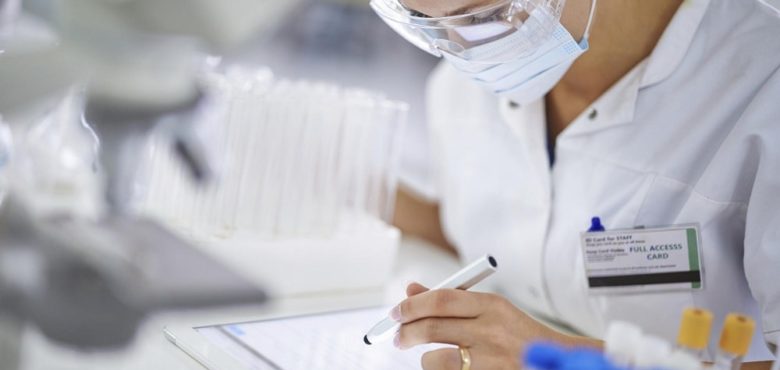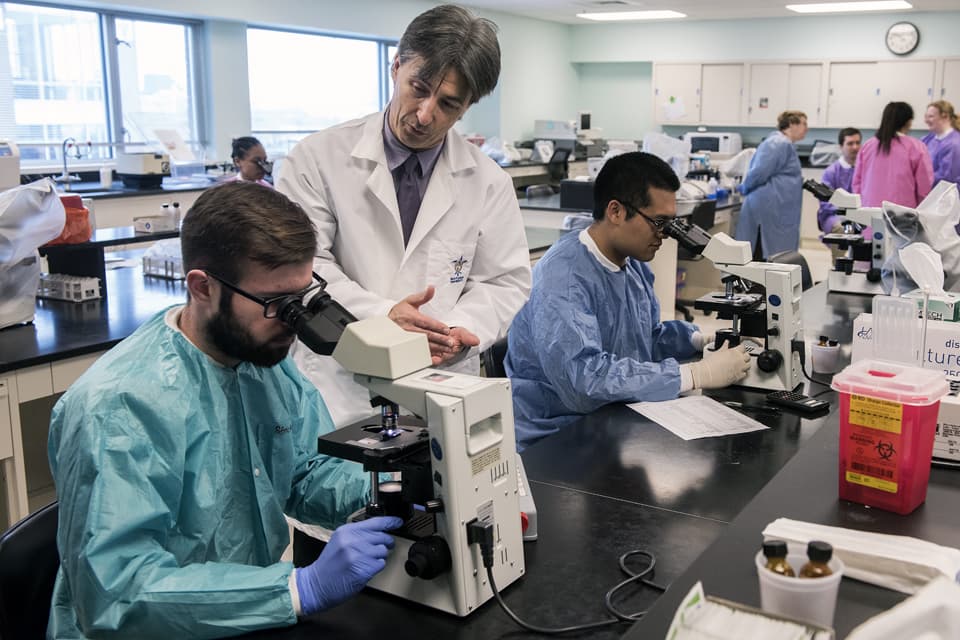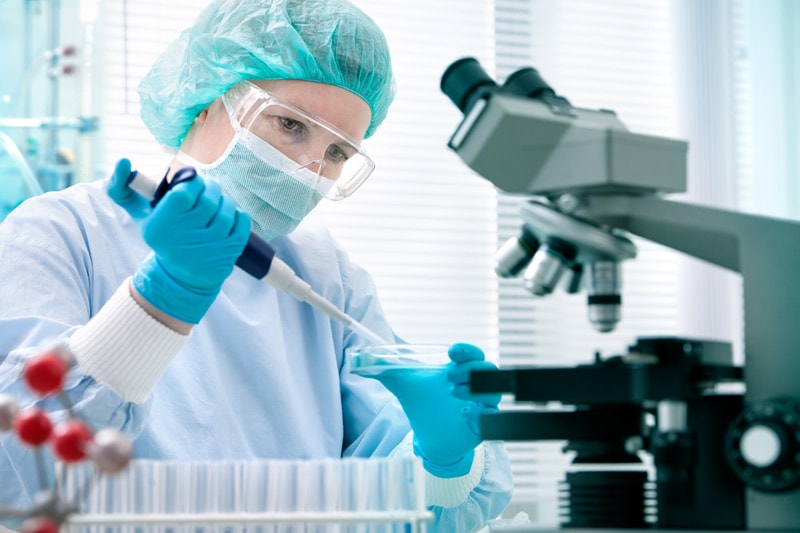Category:

- June 27, 2018
Everything You Need to Run a Laboratory for Business
If you are qualified in the medical industry, or you simply have testing which needs to be done on new products for your business, it will be a great idea to set up a laboratory for this purpose. A scientific laboratory is something which will allow you to test, analyse and assess every chemical and ingredient within your business. It will allow you to go ahead with sales on the knowledge that everything you are putting out into the world is fit for purpose and safe.
To start a business like this and take it to the next level, there are a lot of things you will need to know. Here is everything you will need in order to run a successful laboratory for your business this year.
Regulations and Laws
The first and most important thing you will need to check up on before trying to fund a project like this is what the regulations and laws are like in your area. If you live in the United States, the regulations are likely different for each state, so make sure that you do double check with your local authorities to see what is required from you when starting up a laboratory.
For example, if you were to be opening up a medical testing laboratory, you would need to have certain laws in place for health and safety, and you would also need the permission to cover testing on humans for new drugs and treatments. Be aware of everything and check up on every single eventuality.
People

Just like any other form of business, you are going to need to hire, train and support your staff. When hiring for the scientific or medical community you need to be incredibly strict and ensure that you have at least two rounds of interviews including tests of ability and skill. Anyone who steps foot into a scientific lab has to be someone who is trusted, so you can also think about running background checks on every single person before you even start.
Once the lab workers are within your business you are going to need to devote a lot of resources and money into training them in their specific area. Science is constantly changing and evolving, therefore, it is crucial for scientists to carry on learning throughout their lifetime to understand absolutely everything there is to understand about their given subject.
If you support your laboratory staff they will stay with your for life. Ensure that when you build a lab for your business that you also have an outdoor area and somewhere for your staff to grab some food during the day. They need to be in a positive workplace and even if it isn’t an office setting, the same principles do apply here. Make sure that they have everything they need and be aware that they may need support with stress every once in a while.
Start-Up Investment
Of course, you cannot think about starting a business without an investment for fund the project. There are several ways you will have your start-up investment, and the first one of those is the most obvious: savings. If you have already been running a business for some time you may already have a sizeable savings investment to put down on this building which is great. However, not everyone has this money lying around in their bank account. If you are a fresh start-up, you are going to need to find the project in a different way. You could explore your personal loan options, or you could apply to a forum like Kickstarter and appeal to the public for funding for the project. Whichever one you choose, ensure that you have a decent sum left over after building the lab and filling it up to employee your staff.
Insurance
Insurance is something which absolutely every business should invest in, however, this is even more crucial for a business which deals with chemicals and dangerous materials. As a scientific business, you will want to insure against any lawsuits from your customers, insure for neglect, for safety and for your premises too. There are many different types of business insurance you can take out, and there are many which apply to a laboratory setting which you will want to have to save you losing a heck of a lot of money.
Buying an Existing Business
When you look at opening up your own laboratory for business, it could be that you decide to buy a lab which is already built and fully kitted out. This would save you a huge chunk of money, and time too. And it will allow you to start your working straight away. The only thing with buying an existing lab is that you won’t necessarily know how old the equipment is and this could make things a little bit risky. However, for a start-up who doesn’t have much money to spend this could be a wonderful way to get up on your feet and allow you to start making some money.
Equipment
There are countless different machines, equipment and chemicals which you will want to buy in for your laboratory from the word go. You will need things like a Precision Scale, mass spectrometer, fume cupboard, conical flasks, beakers, burettes, hydrochloric acid, sodium hydroxide, acetone and many others. You will need to write a very specific list of the tests you plan to carry out in the lab and this will allow you to determine what different equipment and chemicals you need for your building. Make sure to look at auction sites for machines because you may be able to find a great deal on a used machine which is still in working order.
Layout
Designing a laboratory is something which had to be done very specifically and with safety of the utmost importance. The first thing you will want to bring into the space is a chemical washing station along with an eye bath to ensure that your workers can quickly wash chemicals off their body if any ever spill on them. This needs to be situated in an easy to reach place and will be set on a slight incline to allow shower water to run down the drain.
Once you have done this you can look into where you will place your benches and ensure that you have plenty of storage for your beakers and flasks. Think about bringing an overhead fan to each workstation in the event of your workers using something with a strong smell such as ammonia. You will need to have a separate station where you keep every chemical in the lab, and this will need l be mapped out accurately so that you can find what you need. For example. If you have 13 shelves on each side of your wall, you can label them from A-Z, and then you can place the chemicals inside and label each place with a number. You will then have a reference book which will show you what you where each chemical is.
Ensure that you make enough room for a fume cupboard in your laboratory because there are certain chemicals out there which will have carcinogenic properties and cannot be carried through the lab, you will store all dangerous chemicals on the fume cupboard and have a space to use the chemical within the hood.
Lab Safety

Safety in a laboratory is the most important thing you need to consider because your workers will be walking into a dangerous place every single day. There are risks of a fire, electrical faults, chemical issues and more, so you need to have a very solid safety plan in place.
To start with, make sure to have multiple fire extinguishers and exits in the lab in case of an emergency. The last thing you want is not to be able to reach the extinguisher and to be all rushing out of the same door.
Think about the equipment that each lab worker will have to wear as soon as they enter. You will need to invest in goggles, coats, hair ties and other things for different experiments. Make sure that your workers know never to come into the lab with open-toed shoes, because if chemicals drip onto the feet they could corrode the skin. Think about having signs up all over the lab with health and safety advice to be on the safe side.
Paperwork
When you are carrying out experiments and reporting on them you will end up accumulating a lot of paperwork. For example, you may end up having multiple different folders, COSHH sheets, guidelines and instructions. Keep everything organised in specific places and make sure they are kept in a safe place overnight to ensure that they stay in good shape and that no one can get their hands on your work.
Biosafety
Biosafety talks about the measures you need to take when handling organisms and materials. For example, if you are carrying out experiments on a certain pathogen, one of your safety measures would be to keep the organism contained to ensure that no one ends up suffering from an infection from the pathogen. Biosafety is crucial, so ensure that you take the time to really be strict with regulations here.

